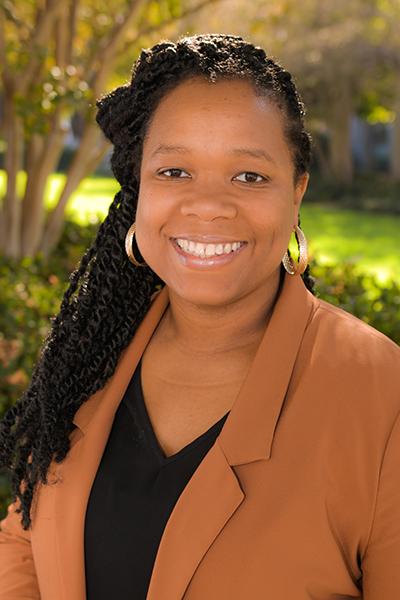Adams Wins NSF Early Career Award

Feb. 23, 2021 - Tayloria N.G. Adams, assistant professor of chemical and biomolecular engineering and a Henry Samueli Career Development Chair, has earned a Faculty Early Career Development (CAREER) award from the National Science Foundation's Division of Chemical, Bioengineering, Environmental and Transport Systems. Among the NSF’s most prestigious, the CAREER award supports early career faculty who have the potential to serve as academic role models in research and education.
Adams will receive $500,000 over five years to support her research on engineering the subpopulations of mesenchymal stem cells (MSCs). MSCs are good candidates for cell therapy because they change into a variety of cell types, provide cell protection and support the immune system.
“Biomanufacturing of MSCs has emerged as a vital area of research; however, obtaining cells that exhibit specific healing properties is difficult because MSCs typically exist as a mixture of cell types,” said Adams. “With this research, we will develop microfluidic technology that can purify cells based on their unique electrical signatures.”
Reducing MSCs’ natural heterogeneity through dielectrophoretic purification holds promise for stem cell therapeutics. Adams’ project involves using electrokinetic cell polarization to target MSC subpopulations based on their functionality. She hopes to expand the number of biomarkers used to identify MSCs and pinpoint the key structural and molecular contributions to cell polarization.
Additionally, this project includes programs that integrate research and education outreach to increase the number of African American undergraduate and high school students pursuing STEM fields. For the next few summers, Adams will offer research internships in her lab for students from Hampton University and the Inglewood Unified School District.
“I’m honored to receive this recognition and grateful for the continued research funding from NSF during my career,” said Adams. “First, I received an NSF Postdoctoral Fellowship in biology, and then a graduate student in my lab received the NSF Graduate Research Fellowship. This CAREER award brings NSF support for my program full circle.”
Begun in 1995, the NSF CAREER program provides recipients the opportunity to pursue outstanding research, excellence in teaching, and the integration of education and research.
– Lori Brandt
